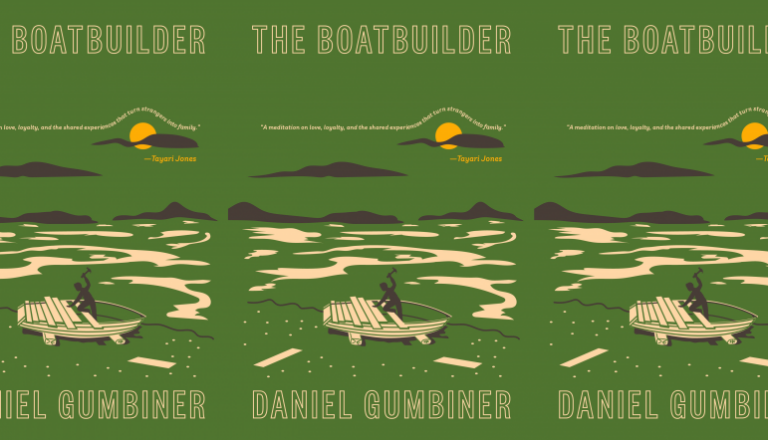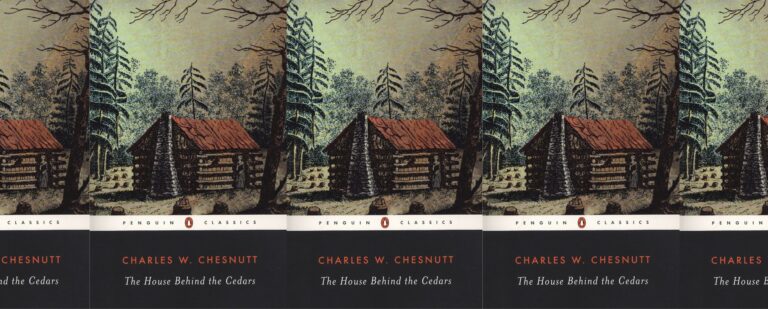Abrazos, Adrienne, and The Revolutionary Idea

I’ve been thinking about my old friend and first teacher Adrienne Rich every day since she died on March 27th in Santa Cruz and I was thinking today of an old funny moment in the sun I had with her and her partner Michelle on their deck in 1997, the week she had just famously turned down President Clinton’s National Medal of the Arts. Maurice Sendak got a Medal that year as well, and, according to Adrienne, Clinton whispered in Sendak’s ear: “When I was a child in Hope, Arkansas, all I really wanted when I grew up was to be a doorman.” Sendak replied: “Well, you can only be President for four more years, you can still be a doorman!”
I never did see Adrienne again at home after that one and only visit in ’97, but we stayed in touch through letters and e-mails, and later on, phone calls that would come every few months or so in the new century to tell me and my boyfriend, Andrew, that she was in town and to come meet her for dinner at Café Loup, on 13th Street, her favorite restaurant in New York.
At the beginning of this year, I’m not sure a lot of people knew how close to death Adrienne actually was, except, of course, for those in her immediate family. Her son, David Conrad, and I met for dinner in February and I told him I was concerned by the fact that I hadn’t heard back from Adrienne after calling to congratulate her on a National Book Award nomination. Adrienne always called back, and when she didn’t the one time, I thought it was because she was angry at my suggesting she take happiness from something she didn’t care very much about. David said not to take an unreturned phone call personally and that his mother’s long struggle with rheumatoid arthritis had made it so she wasn’t traveling anymore and living fully off to the side of her once very active public life. I also knew from the letters she wrote to me that she was suffering from “a kind of macular degeneration” which was advancing quite slowly but was irreversible – frontal vision loss. David was going out to California every week or so to be with her and try to fix it so that her computer would be configured in such a way that she could see the screen. Of course, the end was near, but it wasn’t close enough to touch. And I thought, the way we who live always afterthink, there would have risen a rite of farewell – a strangely non-appointed moment when I could face her one last time before she stopped living.
I met Adrienne Rich in the fog of a liberated but restless and frustrating youth. I actually wanted to be a poet even then – age 12 or 13 – and already was worried about how I would ever make a living at it or worse, have any friends. In those days, having a “poet” friend meant that you didn’t have any “real” friends. But I could see that Adrienne had both a living and friends. She even had children! So, there it was: hope for me. She lived then – this was ’67 or ’68 – at 333 Central Park West and we lived six blocks down at 271, on 87th Street. Her sons (aside from David, there’s Pablo and Jacob) and my twin brother, Kevin were all at the same school and David had become Kevin’s best friend. Kevin wanted to be poet, too, and David, if I remember right, was going to be rock musician (he later became a fine bass player). Knowing that somebody’s mother was a poet was hugely impressive to me and my brother and somehow (I don’t remember how), we convinced Adrienne to let us come to her apartment and sit at her feet on Saturday mornings with our friend Lauri (who also wanted to be a poet) so we could read poetry and talk about what we thought it was doing.
Those meetings were the most important gatherings Kevin and Lauri and I would ever have growing up. It felt as though nobody knew where we were for however-many-hours we sat in joy on however-many-Saturday afternoons. There were no homes or parents we had to return to and we trusted her more than time, as someone who was showing us a new way of taking in the world and how we might live in it beyond what we supposed to already know.
As it happened, we were taking in a lot of W.S. Merwin, too, then (Adrienne reminded me of this years later) and so we brought his books to “class”, along with our own vaguely noble efforts at poems. And we read everything out loud. In those years, Adrienne was still in a heterosexual marriage and I, of course, wasn’t finished becoming the old and cynical gay person I am now. In a letter from 1988, Adrienne wrote me: “we were a queer little workshop, come to think of it”.
Because Merwin and Rich were both writing a kind of poem of resistance, I thought all poetry written during this time was supposed read like this. Why wasn’t all poetry written during this time reading like this? Forty-eight years later, I am still asking that question. As Adrienne herself wrote to the world: “We are living in a time that needs to be lived through us”.
Aside from Merwin’s poems and Adrienne’s own poems, the only other contemporary poems I really knew back then were those last, completely startling missives written by Sylvia Plath in “Ariel”, which had, coincidentally been published the same year as Adrienne’s own, “Necessities of Life”, in 1966. For whatever reason, I didn’t read Adrienne’s poems as particularly feminist or angry or political or as being written by someone who had moved away from the fixed forms of a first prize-winning book. And, of course, they were all those things. Intellectually. But what I felt then was that these were simply the poems being written by someone I knew. And that revelation – the knowledge that a woman who walked with the rest of humanity down into a subway station was the same person who could reach out to that much power of language, shook me – and for many years afterwards continued to shake me – to the core of whatever I thought was my being.
I couldn’t put Adrienne in any literary context because I didn’t have any literary contexts. As singular as I knew she was, I felt lucky to have actually seen her plainly, which is why I learned so much from her, and continued to learn from her years after the boyhood crush on poetry ripened into a vocation. When I went to the High School of Music & Art, Adrienne was teaching across the street at City College in a classroom that was so close to my school that I was able to attend her extraordinary undergraduate poetry workshop that met once a week. I don’t think anybody knew I was only a high school student. She certainly didn’t tell anybody and she treated me with the same respect and interest that she treated everybody else in the room.
The fact that over time Adrienne Rich would become one of the most truthful and luminous writers in America was something I almost never remembered. That lapse usually comes sewn into the fabric of knowing a real artist through so many years. I never remembered her renown because it never changed who she was even through the usually inaccurate public lens it was conceived through. She always had time for her real friends and she was always an advocate, when I mostly had no advocate, for my own work. And when I think of it now, I would have to say that most of my poems have been written – while not to Adrienne personally, of course – in her direction. My last book of poems was dedicated to her because she was, after all, the first writer to ever read anything I had ever written and up until the last years of her life always asked to see new work even when I was shy or embarrassed to send it to her (especially, the prose):
from a letter AR to MK, January 8, 2001
“Your two pieces, “Married,” and “A Resort of the Betrayed” made me want to read them many times. I want to urge you to edit closely and relentlessly — when the work weakens, when the energy drains, it’s because you’re using too many words. Go back and read Gatsby or Dickinson: Less is more. I am enclosing, should it be useful to you, the two pieces, marked-up but with admiration as well as criticism. I’ve put checkmarks by passages I especially like. In going through my edits please remember Pound’s “DICHTEN=CONDENSARE.” It’s a pun in German: “dicten” means to write poetry (Dichtung) but also to condense.”
Of course, the greatest thing I learned from Adrienne – what I think everybody learned from her – was how to have a life in poetry and for poetry – to advocate in favor of poetry; to stand inside the dignity of your belief, however unpopular; that there is no such thing as a career, but only the work that a writer is compelled to do as a response to one’s own questioning soul and outward, into the community in which they live and further out, into the world that will always need to be called out for its insistence on making itself disappear by degrees. She instilled in me the idea of resisting what comes easily or what feels comfortable in what I write about or how I write about it. She was, her whole life, a revolutionary who seemed to reinvent herself alongside even the marketing of her own work. When “Diving Into the Wreck” came out (preceded by her groundbreaking “The Will to Change”), I called her to ask why both books had a photograph of a wave on their covers. “But, they don’t have the same cover,” she said. “Look again. The wave on the new book is more threatening.”
In 1999, I approached Adrienne with the idea of interviewing her for The Paris Review, but when we got a list of questions they wanted me to ask her, they were so stupid and condescending [What time of day do you write?], that we told the magazine no, did our own interview anyway, and sent it to the Boston Phoenix, where it originally appeared. In the interview that was finally published, Adrienne spoke about where poetry was headed – which had by this time traveled many miles away from that original place of resistance, ambivalence and ambiguity that Adrienne herself had taught me was where poetry (real poetry) lived:
“Poetry has gotten to be very ‘in’, in a way, and I’ve seen something I would never have imagined, which is that poetry is being commoditized. And I thought it was uncommodifiable, because so few people really believed that it worked.”
I miss my teacher and friend. And in trying to sort out in my mind and through the letters and interviews and e-mails to find what I wanted to say about her, I found this, from a letter she wrote on January 8, 2002 that turned out to be prophetic:
I’m looking straight into old age, Michael, and what I see for myself is not just aging but the effects of this lifelong debilitative disease. Hard to separate the two. I think, well, ten years from now I’ll be 82, and my grandchildren, now eight, will be eighteen. What kind of life will I be capable of? Where will we all be anyway? What I care about at this point is the love of my beloveds, art, and the revolutionary idea. So this is where I’m writing poems.
The day after she died, I remembered something Adrienne said that I hadn’t thought about since it happened 40 years ago in 1972, when I was 17. Poets John Berryman and Kenneth Patchen had both died in that the first week of January – Berryman first, off a bridge, and then, Patchen, after years of constant pain from a spinal injury, the day after. I saw Adrienne at the City College bookstore on January 8th and she said, “it’s a bad week for poets”. And now, this last week of March, 2012, that went out in reverse like the lion it was supposed to instead come in with will always be remembered as another bad week for poets. The worst bad week for poets I have ever known. So this is where I’m writing poems.


